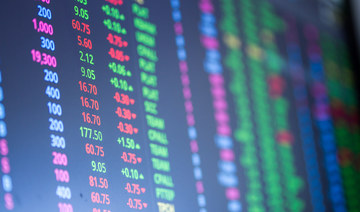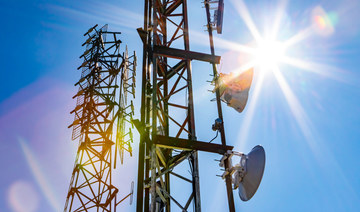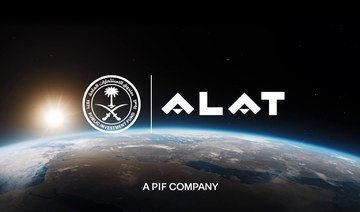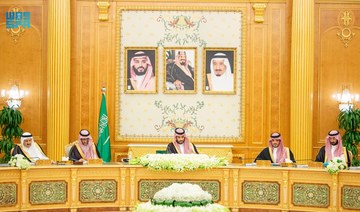LONDON: Rio Tinto sacked chief executive Tom Albanese and revealed a $ 14 billion writedown in connection with his two most significant acquisitions, the Alcan aluminum group and Mozambican coal.
A heavyweight who joined the third-largest diversified miner two decades ago, Albanese will be replaced by iron ore boss Sam Walsh. Doug Ritchie, who led the acquisition of Mozambique-focused miner Riversdale, was also shown the door.
New Jersey-born, Alaska-trained Albanese had until now survived the consequences of his disastrous $ 38 billion acquisition of Alcan in 2007, a bruising top-of-the-market deal when Rio was under pressure from rivals to bulk up or be bought.
The deal, just two months after Albanese took the reins, turned bad as markets crumbled and aluminum prices slumped, battering Rio’s balance sheet, nearly forcing it into the arms of Chinese state-owned Chinalco and triggering a $ 15 billion rights issue. Rio has since seen years of losses in aluminum and taken billions in impairments — it had already taken an $ 8.9 billion charge on those struggling assets a year ago.
Walsh was welcomed by investors and analysts on Thursday as a safe pair of hands, but many also questioned whether a 63-year-old veteran would be a long-term solution, raising concerns over management at a group that also announced the departure of its chief financial officer last July.
“It’s another black mark in terms of (Albanese’s) M&A record and I suppose, given the magnitude of this writedown ... I’m not surprised that he’s stepping down with this, nor am I surprised that Doug Ritchie is,” analyst Jeff Largey at Macquarie said.
Rio had planned to shrink the aluminum arm, cutting back one of the world’s largest producers of the metal by hiving off most of its Australian and New Zealand assets. But industry sources say it has not been mobbed by buyers.
Further damaging his reputation as a dealmaker, Albanese spearheaded a $ 4 billion deal to buy Mozambique-focused coal miner Riversdale in 2011, fighting off rival bidders. There, however, like many other miners in the region, Rio has struggled with the challenge of getting coal from pit to port.
Rail and port bottlenecks are the main headache for miners eager to cash in on Mozambique’s coal rush, but it could take a decade for many of the current infrastructure projects to come to fruition on a scale to meet industry demands.
“(Alcan) was always a bad deal, and Albanese was lucky not to carry the can for it back in 2008,” one of Rio Tinto’s 10 largest investors said. “Mozambique is more of a surprise, but the industry’s record on acquisitions is appalling, and Rio is not alone in destroying shareholder value.”
Anglo American is facing potential writedowns linked to its Minas Rio iron ore acquisition in Brazil, a project set to cost more than three times initial estimates. BHP Billiton, meanwhile, failed to clinch three ambitious bids under its current boss — including two tilts at Rio — but then splashed out $ 17 billion on two shale gas takeovers in the United States just before gas prices slumped.
Like Albanese, BHP Chief Executive Marius Kloppers forfeited his bonus last year after BHP took a $ 2.8 billion charge on the value of its shale gas assets.
Much like Anglo, which appointed a mining engineer as chief executive earlier this month, Rio will now be led by a veteran operations man. Walsh was already in charge of the division that accounts for nearly 80 percent of profits and his appointment hints at a back-to-basics strategy that could turn Rio’s back on big deals.
Walsh joined Rio Tinto in 1991 after 20 years in the auto industry working for General Motors and Nissan Australia and rose up Rio’s management ranks before being appointed to head its biggest division, iron ore, in 2004.
Walsh is also a more chummy presence than Albanese, who rarely veered from the script. A lover of the great outdoors who walked across remote Alaska snowfields staking mining claims after college, these days he is more often found on Britain’s canals in his own narrow boat.
News of Albanese’s departure and the writedown, almost as large as the group’s underlying profit in 2011, took the market by surprise, knocking Rio shares in early trade. At 1040 GMT the stock was 1.8 percent lower, having been down as much as 4.5 percent earlier in the day.
“I wasn’t expecting the $ 14 billion writedown,” said Tim Schroeders, a portfolio manager at Pengana Capital, which owns Rio Tinto shares. He said the departures pointed to a company under pressure to do a better job of managing its purse strings.
“I think it’s clearly a case of the board’s laid down the law in terms of stricter accountability than we had pre-(crisis),” he said.
Rio said the writedowns include a charge of around $ 3 billion relating to the Mozambique business — virtually its entire original price tag — as well as reductions in the carrying values of Rio’s aluminum assets in the range of $ 10 billion to $ 11 billion.
The group also expects to report a number of smaller asset writedowns in the order of $ 500 million. The final figures will be included in Rio Tinto’s full-year results on Feb. 14.
“It is non-cash, it doesn’t impact valuation, it doesn’t impact the earnings near term. But (flagship Mongolian copper-gold mine) Oyu Tolgoi’s still to plan,” said one London analyst who declined to be named. “For me, it’s clearly negative, but it’s not the end of the world.”
Neither Albanese nor Ritchie, who will leave in July, will take lump-sum payments, and both will forfeit bonuses on departure, including outstanding bonus share entitlements earned in previous years.
Albanese is not the only chief executive on the way out of a major mining company. BHP has said it is seeking a replacement for chief executive Marius Kloppers, and Anglo American earlier this month replaced chief executive Cynthia Carroll.
Rio Tinto CEO quits after $ 14 bn writedown
Rio Tinto CEO quits after $ 14 bn writedown
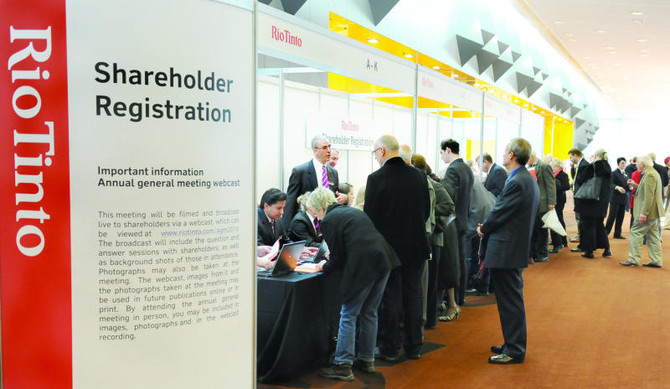
Closing Bell: TASI edges up to close at 12,460 points

RIYADH: Saudi Arabia’s Tadawul All Share Index climbed on Wednesday, gaining 102.12 points, or 0.83 percent, to close at 12,460.11.
The total trading turnover of the benchmark index was SR8.189 billion ($2.18 billion), as 138 of the listed stocks advanced while 81 retreated.
Similarly, the MSCI Tadawul Index increased by 9.75 points, or 0.63 percent, to close at 1,557.46.
The Kingdom’s parallel market Nomu also climbed by 144.95 points, or 0.54 percent, to close at 26,886.59. This comes as 32 of the listed stocks advanced while as many as 35 retreated.
The best-performing stock of the day was Acwa Power Co., whose share price surged by 9.7 percent to SR438.80.
Other top performers include Alkhaleej Training and Education Co. and the Mediterranean and Gulf Insurance and Reinsurance Co., whose share prices soared 8.92 percent and 8.09 percent to SR37.25 and SR34.75, respectively.
Additional top performers include Al-Baha Investment and Development Co. and Malath Cooperative Insurance Co.
The worst performer was Nahdi Medical Co., whose share price dropped by 2.48 percent to SR133.60.
Other poor performers were the Co. for Cooperative Insurance as well as Jabal Omar Development Co., whose share prices dropped by 2.42 percent and 2.32 percent to stand at SR161 and SR27.40, respectively.
Additional poor performers include United Cooperative Assurance Co. and AlSaif Stores for Development and Investment Co.
On the announcements front, Al Rajhi Bank announced its intention to issue US-denominated additional tier-1 capital sukuk under its international additional tier-1 capital sukuk program established on April 18 following the board of directors’ decision on March 25.
The bank informed Tadawul that the value and terms of the sukuk offering would be decided based on current market conditions.
The sukuk will be issued through a special-purpose vehicle and will be accessible to qualified investors, both domestically and internationally.
The bank appointed Al Rajhi Capital, Citigroup Global Markets Ltd, Dubai Islamic Bank, and Emirates NBD, as well as Goldman Sachs International, HSBC, and Standard Chartered Bank, as joint lead managers and bookrunners for the potential offering.
Nahdi Medical Co. announced its results for interim financial results for the period ending on March 31, with revenues surging by 7.24 percent to reach SR2.257 billion, compared to SR2.105 billion in 2023.
The increase was primarily driven by a strong performance in the core pharma segment and a solid recovery in front shop segment led by the beauty categories.
However, the company’s net profits decreased in the first quarter of this year to SR232.9 million, marking a 4.67 percent decline compared to the same quarter in 2023.
Saudi Telecom Co. also announced its financial results for the same period with earnings increasing 5.07 percent compared to the same quarter last year, reaching SR19.1 billion.
Saudi Real Estate Co. also announced its financial results for the same period, with revenues surging by 8.8 percent to reach SR427.6 million, compared to SR393 million in 2023.
The revenue growth was mainly attributed to the increase in stc Saudi Arabia earnings by 1.2 percent, driven by the rise in commercial unit revenues by 6.7 percent and carriers and wholesale unit incomes by 5.7 percent, which offset the decline in business unit revenues.
Furthermore, stc’s subsidiaries’ gains also increased by 13 percent.
Halwani Bros. Co.’s earnings increased by 5.93 percent to SR270.36 billion compared to SR255.22 billion in its interim financial results, which ended March 31.
The reason for the increase in sales during the current quarter compared to the same period of the previous year is due to a rise in the company’s transactions in the Kingdom and its subsidiary in Egypt.
Saudi Arabia achieves highest evaluation level in UN’s Competition Law Systems Report

RIYADH: Saudi Arabia has received global recognition from a UN commission for its robust legal framework and “very strong” competition law.
The Kingdom attained the highest evaluation level in the Competition Law Systems Report for 2023, issued by the UN Economic and Social Commission for Western Asia, surpassing the “developed” level achieved in 2020, according to the Saudi Press Agency.
The Competition Law Index measures the strictness of regulations and is categorized according to the maturity of eight key criteria.
The Kingdom achieved a perfect score of seven in the index concerning regulatory frameworks for economic concentration operations.
Saad Al-Masoud, the spokesperson for the General Authority for Competition, affirmed that this advancement reflects the support GAC receives from the wise leadership to achieve the goals of Vision 2030 programs.
He added that these objectives aim to improve a sustainable business atmosphere, foster economic growth, and advance consumer welfare.
Al-Masoud further noted that this achievement is the result of significant developments in several areas, including laws combating monopolistic practices and anti-competitive agreements, as well as his authority’s efforts to review economic concentrations.
He also said that several additional factors have contributed to upholding the competitive landscape of the business sector, ensuring fairness, transparency, and adherence to reasonable competition regulations.
An initial competition system was established in Saudi Arabia in 2004, and in October 2017 the Kingdom’s Council of Ministers endorsed the change of the name to the GAC and a new organizational structure.
The authority was also made a financially and administratively independent entity, and in March 2019, another royal decree was issued approving the updated competition system.
Since its inception 20 years ago, GAC has imposed fines totaling nearly SR1 billion ($270 million) on around 252 companies found to be violating its regulations, according to a recent interview Al-Masoud conducted with Arab News.
As a prominent regulatory body, it aims to safeguard the integrity of market mechanisms while fostering innovation and diversity in products and services.
stc Bank set to launch later this year, says group CEO
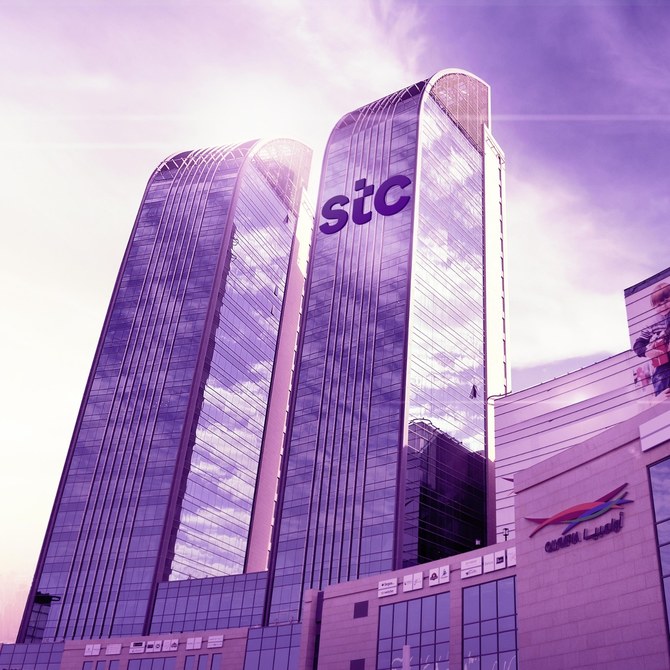
RIYADH: Saudi telecom giant stc Group has obtained official approval for the soft launch of its new banking sector subsidiary, aiming to provide Shariah-compliant fintech solutions.
The Saudi Central Bank has given the green light for the beta launch of stc Bank, with a full rollout to all customers anticipated later this year, revealed the company's CEO, Olayan Al-Wetaid, while announcing the financial results of the first quarter.
The new entity will offer banking services and financial solutions compliant with Islamic Shariah, prioritizing high security and customer protection through advanced fintech. This aligns with the ambitious goals of the Kingdom’s Vision 2030 for a prosperous diversified economy.
In its financial results announcement for the period ending March 31, the CEO explained that stc Group has strengthened its position in the telecommunications sector through a strategic partnership with the Public Investment Fund.
Earlier in April, the two entities finalized agreements for PIF to acquire a 51 percent stake in the Telecommunications Towers Co., also known as Tawal, valuing the company at SR21.94 billion ($5.8 billion).
This transaction is part of a broader merger with Golden Lattice Investment Co. to form a new entity that aims to lead the national telecommunications infrastructure, with stc Group retaining a 43.06 percent stake.
These developments are part of stc’s DARE 2.0 strategy, which focuses on unconventional growth paths and leading digital transformation in the region, Al-Wetaid stated.
The strategy has already yielded significant results, with stc’s network experiencing its highest volume of voice calls during the recent Ramadan, a 35 percent increase compared to the previous year, supported by modern digital voice technologies.
Further embodying its growth strategy, stc Group has engaged in numerous strategic partnerships and agreements, notably at the LEAP 2024 conference with global tech giants such as Huawei, Ericsson, and Samsung.
These collaborations are designed to enhance innovation and speed up digital transformation across the region.
Additionally, the group’s subsidiary, Solutions, signed a memorandum of understanding with the French Devoteam Group in February to explore IT investment opportunities globally, following Solutions’ acquisition of a 40 percent stake in Devoteam Middle East.
In its financial report, stc Group highlighted a notable growth in revenues for the first quarter of 2024, which increased by 7.76 percent compared to the previous quarter and by 5.07 percent compared to the same quarter last year, totaling SR19.1 billion.
This revenue growth was primarily driven by a 1.2 percent increase in stc Saudi Arabia’s revenues, supported by a 6.7 percent rise in commercial unit revenues and a 5.7 percent increase in carriers and wholesale unit revenues, despite a decline in business unit revenues.
Additionally, revenues from stc’s subsidiaries saw a significant rise of 13 percent.
The company also reported growth in gross profit, which rose by 5.13 percent compared to the previous quarter and by 1.65 percent compared to the same quarter last year, reaching SR9.3 billion.
Earnings before interest, taxes, zakat, depreciation, and amortization similarly showed a robust increase, rising by 16.3 percent compared to the previous quarter and by 2.07 percent compared to the same period last year, reaching SR6.4 billion.
Notably, net profit for the quarter surged by 44.50 percent compared to the previous quarter and increased by 5.69 percent compared to the same quarter last year, totaling SR3.2 billion.
Saudi Arabia poised to elevate US AI infrastructure, Alat CEO says
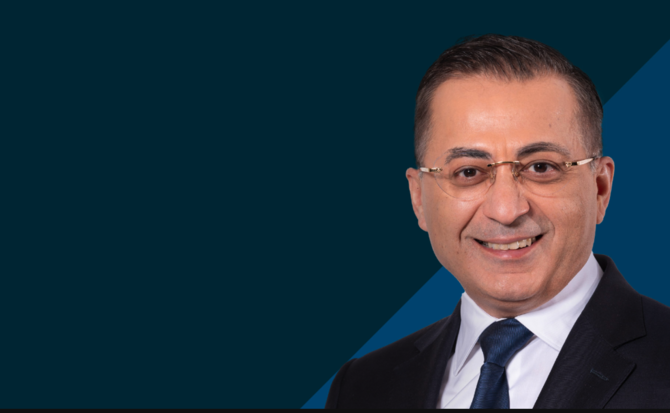
RIYADH: Saudi Arabia has the potential to serve as a crucial contributor and advocate for the development of US artificial intelligence infrastructure, according to a top official.
Speaking at the Milken Institute Global Conference in California, Alat CEO Amit Midha discussed the company’s future endeavors and collaborations with global partners in the technology sector in an interview with Bloomberg.
Launched by Saudi Crown Prince Mohammed bin Salman, Alat plays a significant role in manufacturing semiconductors and various smart technologies, including advanced industrials and next-gen infrastructure.
Midha told the event: “We can be meaningful builders and supporters for US captaincy of building AI infrastructure.”
Saudi Arabia’s ambitions in advanced technology extend to establishing data centers, nurturing AI enterprises, and bolstering semiconductor manufacturing, according to Bloomberg..
In a parallel development, the US has urged Abu Dhabi-based AI firm G42 to divest from Chinese technology. This move, in exchange for continued access to US systems powering AI applications, paved the way for a significant $1.5 billion investment from Microsoft Corp. in G42.
Speaking on partnerships with the US and China, Alat’s CEO said: “So far, the requests have been to keep manufacturing and supply chains completely separate, but if the partnerships with China would become a problem for the US, we will divest.”
According to Bloomberg reports, US officials have been engaging with their Saudi counterparts, emphasizing the necessity for Saudi Arabia to opt between Chinese and American technology as it seeks to advance its semiconductor industry. These discussions are part of broader dialogues concerning national security.
Midha highlighted the importance of forging secure and reliable partnerships with the US.
“The US is the number one partner for us and the number one market for AI, chips and semiconductor industry,” he emphasized.
Meanwhile, Alat is poised to unveil partnerships with two US tech companies by the conclusion of June, with plans for co-investment alongside a US firm.
According to Bloomberg, Midha has refrained from disclosing the names of the companies involved or specifying whether the collaborations are focused on AI, chips, or a combination of both.
Energy deals with Brazil, Japan, and Jordan signed off by Saudi Cabinet
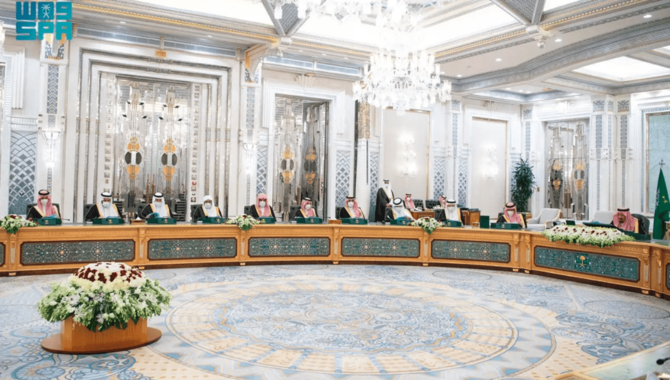
RIYADH: Saudi Arabia has approved economic and energy deals with several countries including Jordan, Brazil, and Japan, during its latest Cabinet meeting.
An agreement between the central banks of the Kingdom and Qatar focusing on cooperation in financing operations was also among the deals endorsed.
The meeting also approved various agreements between the Saudi government and other countries, including Oman, Georgia, and Morocco.
The Council of Ministers discussed updates on the Kingdom’s cooperation with various countries worldwide, focusing on efforts to enhance bilateral and collective work across multiple fields.
Among them were agreements reached between the Kingdom and both Uzbekistan and Azerbaijan in the field of energy.
These accords reflect a commitment to the sustainability and stability of petroleum markets. They also aim to advance cooperation in clean energy sectors, contributing to a globally organized energy transition. Additionally, they seek to build a more sustainable future for the three countries and the world.
In his statement to the Saudi Press Agency following the session, Minister of Media Salman Al-Dosari highlighted the Council’s appreciation for the results of the recent Arab conferences in Riyadh focused on environmental matters.
He added that the Cabinet stressed the Kingdom’s keenness to partner with regional and global entities to bolster agriculture, food security, and water resources, aligning with the country’s sustainable development goals.
During the session, the Council of Ministers cleared various agreements including an energy cooperation deal between Saudi Arabia and Jordan, as well as a memorandum of understanding between the Saudi Ministry of Energy and Brazil’s Ministry of Mines and Energy.
The Cabinet also endorsed two cooperation pacts between the Saudi Ministry of Industry and Mineral Resources and both Morocco’s Ministry of Energy Transition and Sustainable Development, and Japan’s Ministry of Economy, Trade and Industry. These pacts relate to the fields of mineral wealth, mining, and mineral resources.
Moreover, it cleared the Kingdom’s accession to the Geneva Act of the Hague Agreement concerning the international registration of industrial designs.
Additionally, the Cabinet approved the implementation of a decision made by the Gulf Cooperation Council states’ Financial and Economic Cooperation Committee regarding the final draft for exempting industrial inputs from fees. This decision was made during the committee’s 120th meeting, held in October 2023 in the Omani capital, Muscat.


